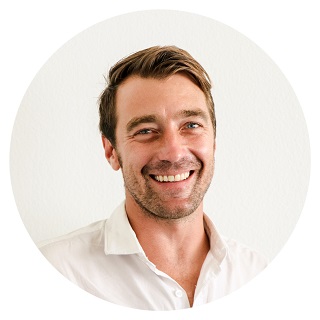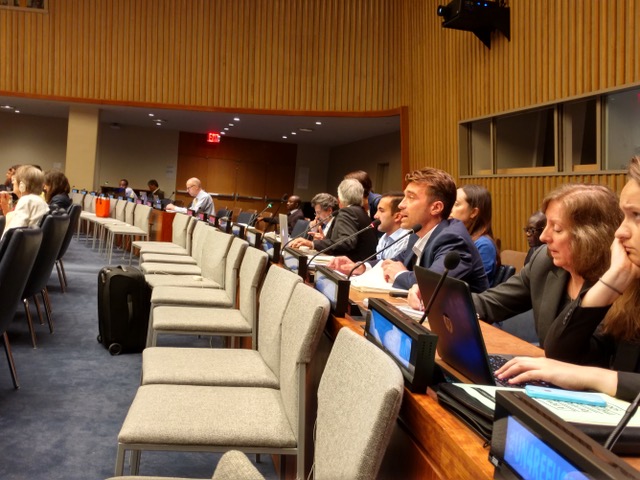Expert analysis
19 July 2018
Partner series: Noah Bullock from Cristosal
 In this new interview series, we find out more about IDMC's partner organisations; the work that they are doing, the challenges they face and their best professional advice!
In this new interview series, we find out more about IDMC's partner organisations; the work that they are doing, the challenges they face and their best professional advice!
- Name: Noah Bullock
- Position: Executive Director of Cristosal
- From: Born in Boston, USA but lived in El Salvador for 13 years
Tell us about your organization and your role
Cristosal is a human rights organization providing assistance to victims of human rights violations, specifically forced displacement associated with violence, in El Salvador, Guatemala and Honduras. We have a protection team providing emergency protection to people who suffer persecution, a specialized legal team and a litigation unit who have brought six cases of IDPs before the Salvadoran Supreme Court, and a durable solutions programme that is developing community-based protection options to support reintegration of internally displaced people.
As executive director, I do everything from taking out the trash to signing checks!
How are you partnering with IDMC?
We also have a monitoring unit that, over the last three to four years, has been able to develop tools for qualitative data gathering, case registries and documentation. We’re working with IDMC to try and expand some of those tools. We want to create a consolidated system of monitoring and data gathering on internal displacement associated with violence in the Northern Triangle of Central America. It’s a strategic but also friendly relationship!
What have been the benefits of partnering with IDMC?
Even though we have a presence in three countries, we’re still a local NGO. It’s really important that we develop instruments that are consistent with international frameworks, so that our data can be measured against international standards and compared with other contexts. IDMC is a helpful partner in that way.
It’s also a strategic partner in terms of advocacy; IDMC’s Global Reports on Internal Displacement have a high impact in El Salvador and we’ve been able to provide local context and feedback to help launch them in the region.

What would you say are the main challenges facing IDPs today?
There’s a scarcity of political will and resources to respond to humanitarian need and IDPs often get left off the political agenda. They’re invisible in their own societies so often their needs are unaddressed. Situations of unaddressed displacement in societies like El Salvador become the vehicles for the next generation to inherit the social inequality and exclusion that then will lead the next generation to be vulnerable to displacement again.
What did you want to be when you were growing up?
I would’ve liked to be the short-stop for the Boston Red Sox!
After that I always had a sense of unfairness in the world and believed that people who grow up in privilege have a responsibility to open spaces for others. So I graduated college thinking I wanted to work in the human rights sector, but I didn’t really know what that meant. I thought it was consolidating the gains in the international human rights system, but actually it’s just defending the minimum standards.
How did you get into this role?
I was an intern at Cristosal 15 years ago when there were only three people!
What has been the best piece of professional advice you’ve ever been given?
Well, it’s not advice given to me directly, but in Samantha Power’s biography of Sérgio Vieira de Mello – he was the UNHCR High Commissioner killed in a bomb in Iraq – called Chasing the Flame, he said; ‘if you make an enemy, it’s for life. So you have to be very sure you want an enemy in order to get the things done you need to get done’. Sometimes it’s better not to react to people who try and generate conflict with you because that probably plays into what they’re trying to get out of you.
Find out more about Cristosal at:
Cristosal.org
@Cristosal
Facebook.com/cristosal